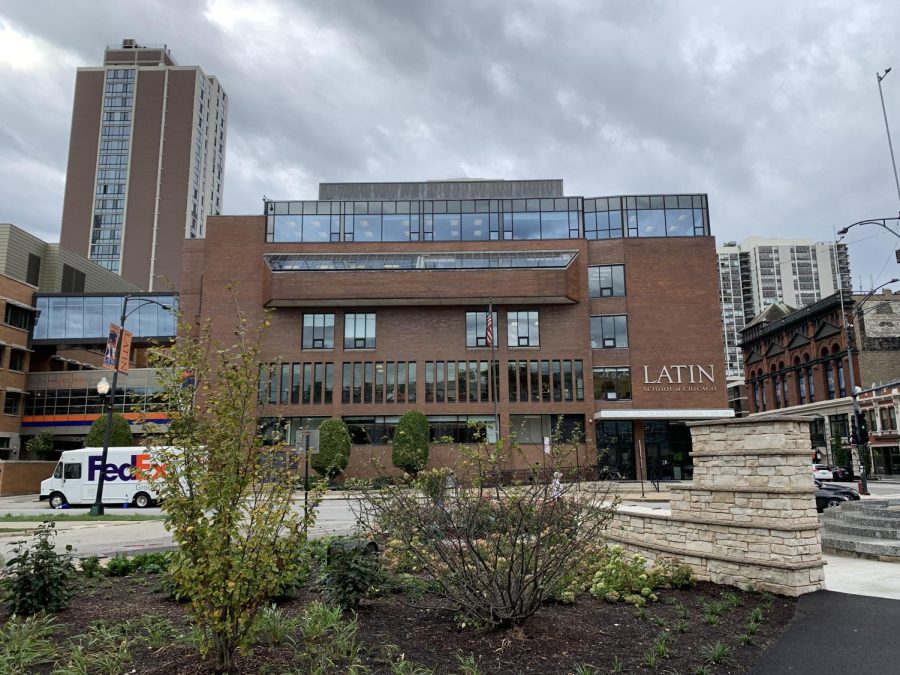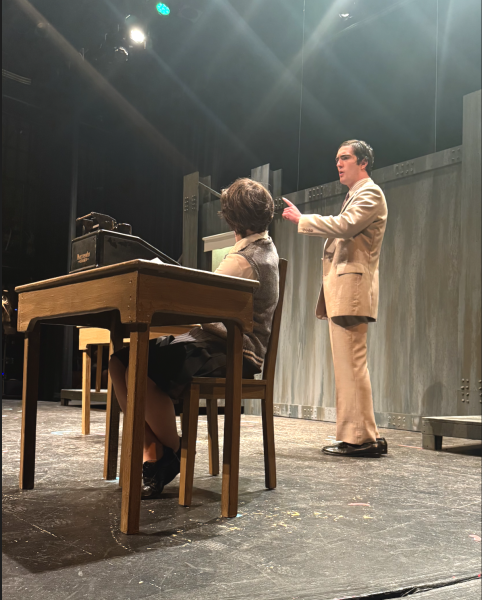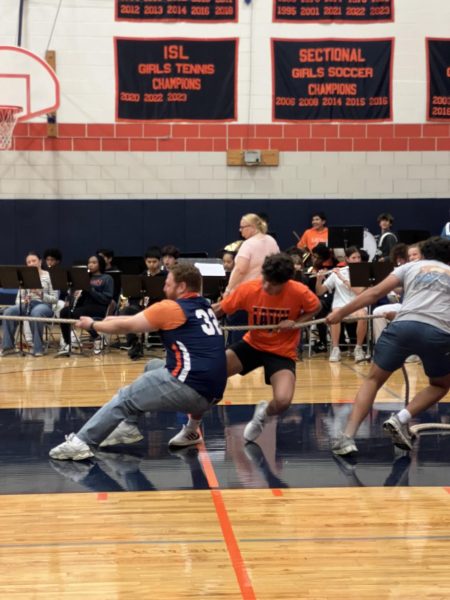Faculty Union and Administration Begin Collective Bargaining Process
The Latin School Faculty Union asked the administration for 12% raises for all faculty and staff.
The Latin School Union (LSU) and the administration have commenced their first collective bargaining, and as negotiations begin, the two sides are far apart.
A bargaining session on February 1 was attended by 13 union members and an Illinois Federation of Teachers staff member, as well as five administrators and two outside counselors. The LSU’s request: 12% pay increases for all teachers and a 120.5% increase for assistant teacher starting salaries. The LSU did not specify to the administration where the money for raises would come from.
The administration countered with a 3.5% raise for all except assistant teachers, whose starting salaries will stay the same. For the 2022-23 school year, Latin will raise tuition by 3.5%, the same percentage increase as the salary raise offered to the teachers.
In the months leading up to the meeting, the union has been working to form their bargaining committee and prepare for their first session. Any members of the union were able to join, and a few attended online training through Cornell University. The union wants bargaining sessions to be open to all, even those who are not on the committee, but the administration has opposed allowing union members outside of the committee from attending the meetings.
“The laws that govern bargaining govern both sides of the bargaining table: the employer and the employees, the workers,” Upper School Latin teacher and President of the LSU Elissabeth Legendre said. “The school suggested some ground rules, but we responded by saying the laws are clear, and we are going to abide by the laws and we want them to abide by the laws as well. We think that imposing extra limits on the way that bargaining can happen is just unnecessary because the law is already clear.”
Fourth grade teacher and Lower School Representative Carrie Smey emphasized this point about bargaining, saying, “It is already governed by required laws, like rules and expectations. I think that in the end, both parties, we just ultimately want a respectful process where everybody’s ideas are listened to and valued.”
One area that has already emerged as critical in the bargaining process is assistant teacher salaries. At Latin, assistant teachers help the lead teachers in any way needed and serve as substitutes when the lead teachers are absent. Assistant teachers are an important part of the educational program at Latin but are paid very little by the school.
“I think it just shows that they place very little value on the assistant teachers even though they want every class in the Lower School to have one,” Lower School assistant teacher and Swim Coach Caroline Kirkland said.
Similarly, Lower School assistant teacher Lamiaa Nadif said, “I have talked to some other assistant teachers, and we were thinking that we would not come back if they did not give us more. It’s very unfair. It’s not a living wage. As much as we love working with kids, as much as we love being here, it’s too much.”
Currently, the starting salary for assistant teachers at Latin is $22,000 a year, and their maximum salary is $25,000. As of 2022, the living wage in Chicago is $33,945 per year.
Comparatively, the lowest salary for an assistant teacher at University of Chicago Laboratory Schools, another independent institution in Chicago, is 52% higher than Latin’s, at $33,440, and their highest is 158% higher than Latin’s highest, at $64,500.
The most tenured assistant teachers at Lab earn substantially higher salaries than newer ones, which is not the case at Latin, in part because assistant teachers at Latin typically don’t stay at the school for more than three years.
Ms. Legendre said, “We might have a different program [than Lab]. But to say to somebody that you’re working a 40-hour week for that much money, it just feels like it’s not enough money. It doesn’t align with our mission, and our sister schools are paying so much more. We want to give our people living wages, and we would argue that [Lab’s] is a living wage.”
Many assistant teachers have to take extra jobs around the school in order to meet their financial needs. Ms. Kirkland works as the assistant swim coach for both the boys and girls teams.
“I do it for enjoyment, but I only started doing it because I couldn’t pay my bills,” she said. “We all have to supplement where we can, whether it’s an extended day, coaching, nannying after school, that kind of thing. I get paid the same for coaching that I do for teaching. I teach 40 hours a week and I coach 10-15 hours a week.”
Ms. Nadif said, “I really do think that assistant teachers are valuable, and just considering the resources that Latin has, it is just shameful that they don’t show the value that they should place on their assistant teachers.”
Even though the administration’s counteroffer on faculty salary increases was 8.5 percentage points lower than the union’s starting position, Ms. Smey said, “They were lower than we originally asked for, but it’s totally expected. That’s how bargaining works.”
The Forum reached out to four senior administrators after the first bargaining session, and heard back from two. They both declined to comment, giving the exact same response, saying, “At this point, there is not much information we can share broadly except to say that we are engaging fully with the union right now and look forward to beginning the collective bargaining process in earnest.”
When the union was first proposed by the teachers in the spring, their main reasoning was that they wanted a seat at the table to support and speak up for their students. Senior Arjun Singh said, “There will always be more that teachers can do to directly advocate for students, but I do believe that the changes that the union has advocated for thus far will no doubt be of benefit for students in the long run.”
Arjun noted that it is difficult when a teacher is unable to come to school and that with the union’s fight for sick days and a salary increase, they are attempting to keep teachers in school for the benefit of their students.
Ms. Smey said, “I feel like everybody who works here tries to do [what is best for students] every day. I don’t think anyone, faculty, staff, administration would be here if they didn’t feel that way.”
Similarly, Ms. Legendre said, “I would say that in all bargaining proposals, it always starts with what’s best for the kids, and what’s best for our students. So, is it the best thing for our students if our faculty have good healthcare? I would say yes. Is it the best thing for the students if our faculty have a clear evaluation system to help be better teachers? I would argue that that’s absolutely the truth.”
Ms. Smey said, “I think I am just going to continue to listen, support colleagues, teach and mentor students as best I can, and engage respectfully with everyone that I have conversations with.”

Eliza Lampert (’24) is a senior at Latin and is overjoyed to serve as one of this year’s Editors-in-Chief. During her time writing for The Forum, she...




















































